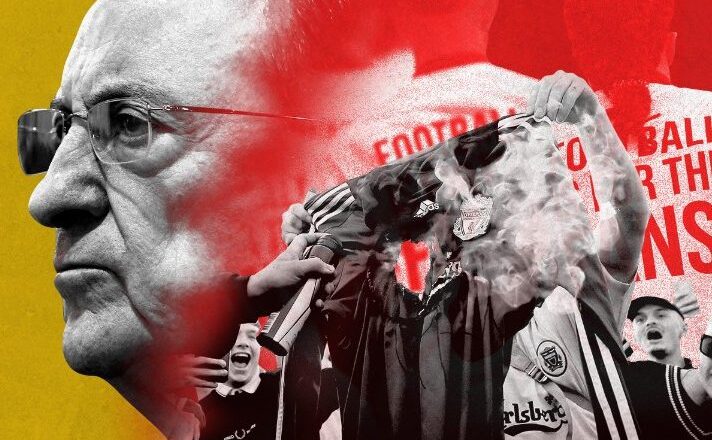Two years after its initial crash, the European Super League (ESL) is back with a new format and an aim to launch as a multi-division competition of 60 to 80 teams. The announcement was made by Madrid-based company A22, the sister company of the ESL, in a move timed to coincide with a renewed push from the remaining rebels, Real Madrid, Barcelona, and Juventus, to continue their battle with UEFA.
According to A22, the new project is a result of extensive discussions with clubs across Europe about the financial challenges they face. The company has focused its attacks on the wealth of the Premier League and its domination of the transfer market, which it argues has affected other European leagues with less lucrative TV deals.
The format of the new Super League is still a mystery, but A22 and its major backers, such as Real president Florentino Perez, have claimed in the past that there will be higher solidarity payments for clubs that do not participate in European competitions. The company has also pledged to support the women’s game, domestic competitions, player health, financial sustainability, and fan experience. However, there are no details on the amount of revenue generated or who might run the ESL.
As for UEFA’s Champions League, the most powerful clubs outside the rebel three have helped shape the new format post-2024, known as the “Swiss model,” which will have 36 teams in a single division playing ten group stage games instead of the current six. UEFA and the European Club Association, which represents clubs across Europe, co-own a joint venture that controls all revenue from the Champions League, Europa League, and Europa Conference League.
In the original iteration of the European Super League in 2021, power was concentrated in the hands of Perez, former Juventus chairman Andrea Agnelli, and Manchester United co-owner Joel Glazer. The original Super League was dealt a significant blow before Christmas in its legal case with UEFA in the European Court of Justice in Luxembourg, with the advocate-general Athanasios Rantos’ advice to the court heavily favoring the UEFA monopoly. Although the advice is not binding, it is usually followed and found that EU competition law was compatible with UEFA and FIFA’s power over football and “proportionate” for achieving UEFA’s “legitimate objectives.”
.
.
Joseph Omoniyihttps://twitter.com/Ola_josef?t=mFqIqPFZ07cIvBVM8-88lw&s=09https://www.facebook.com/omoniyi.babasoro
- Tags: Football, Super League





